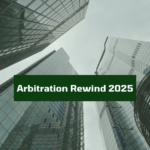In an international commercial arbitration, there are at least 5 (five) systems of law that have a material bearing on the procedure and outcome of an arbitration. These 5 (five) systems of law are (i) laws governing the contract; (ii) laws governing the arbitration agreement; (iii) laws governing the arbitral proceedings; (iv) laws governing the parties’ capacity to sign the contract; and (v) the laws governing the territory where the arbitral award is to be enforced.
One the most widely debated issue in international commercial arbitration is whether arbitrability of the dispute shall be decided as per the law governing the contract (“Proper Law”) or the law governing the arbitration agreement (“Law of the Seat”). In this article we consider the implications of the judgement of the Singapore Court of Appeals (“SGCA”) in the case of Anupam Mittal v. Westbridge Ventures II Investment Holdings (“Anupam Mittal Case”) in relation to international commercial arbitration from an Indian law perspective.
Facts of the Anupam Mittal Case
Anupam Mittal, along with Navin Mittal and Anand Mittal, was the founder of an Indian company, People Interactive (India) Private Limited (“Company”). The Company entered into a share subscription and share purchase agreement and a shareholders’ agreement (“SHA”) with Westbridge Ventures II Investment Holdings (“Westbridge”). In 2014, Navin Mittal sold his shares in the Company and resigned as the director of the Company, resultant to which Westbridge held 44.38% (forty four point thirty eight percent) shares of the Company. The SHA gave Westbridge the right to appoint a nominee director on the board of directors of the Company. Accordingly, Ms. Mani was appointed as the nominee director by Westbridge on the board of the Company. The SHA further provided that while the performance and all matters related to the contract would be governed by Indian laws, the arbitration between the parties will be governed by the laws of Singapore.
In 2017, the relationship between Anupam Mittal and Westbridge deteriorated when Westbridge communicated its interest in exiting the Company. The terms of the SHA stipulated that if the Company did not complete an initial public offering within 5 (five) years from the closing of the SHA, Westbridge could sell its shares in the Company and “drag along” all the other existing shareholders to sell their shares of the Company to a third party.
The dispute between the parties arose when Westbridge wanted to “drag along” all the other shareholders and sell the shares of the Company to an alleged “significant competitor”. Meanwhile, Westbridge also refused to re-appoint Anupam Mittal as the executive director of the Company.
Case history and Issues before SGCA
Pursuant to the disputes, Anupam Mittal approached the National Company Law Tribunal, Mumbai (“NCLT, Mumbai”), alleging oppression and mismanagement on part of Westbridge.
Aggrieved by the action taken by Anupam Mittal, Westbridge approached the Singapore High Court (“Singapore HC”) and alleged breach of contract by Anupam Mittal. Westbridge submitted that the SHA clearly stipulated that disputes between the parties in relation to the management of the Company shall be resolved by arbitration seated in Singapore and governed by the International Chambers of Commerce. Westbridge prayed for an “anti-suit injunction” to be granted against Anupam Mittal. The Singapore HC granted an “anti-suit injunction” restraining Anupam Mittal to proceed any further before NCLT, Mumbai. The Singapore HC also held that the arbitration between Anupam Mittal and Westbridge would be governed by the Law of the Seat and thus, arbitrability of the dispute will be determined as per Singaporean law at a pre-arbitral stage.
To neutralize the “anti-suit injunction” issued by the Singapore HC, Anupam Mittal approached the High Court of Bombay (“Bombay HC”). Anupam Mittal prayed before the Bombay HC to pass an order declaring that NCLT, Mumbai is the only competent forum to hear and decide the disputes in relation to the management of the Company. However, the matter was not taken up for hearing by the Bombay HC. In addition, Anupam Mittal also filed an appeal before the SGCA, against the order of the Singapore HC.
At the very outset, there were 4 (four) issues before the SGCA:
1. Whether arbitrability of subject matter be determined according to the Law of the Seat or Proper Law;
2. Determination of applicable Proper Law;
3. The proper characterization of disputes; and
4. Whether the court should order a stay of the anti-suit injunction on case management grounds even if the disputes are arbitrable in nature.
Findings of the SGCA
Issue 1: Arbitrability of subject matter
The SGCA observed that arbitrability of a dispute is to be determined by the Proper Law that governs the arbitration agreement in the first instance. Where an agreement provides for a foreign governing law and the subject matter is non-arbitrable, Singaporean courts will not allow the arbitration proceedings as it would be contrary to public policy under the applicable foreign law.
Further, on account of Section 11 of the International Arbitration Act 1994, if a dispute is non-arbitrable under Singapore law (although it is arbitrable under the foreign governing law), the arbitration cannot be allowed. The SGCA has cited Prof. Chan in terming such an approach as the “composite approach”.
SGCA further held that while it is the public policy in Singapore to encourage arbitration, it cannot override principles of comity or insist on application of Singapore laws to a matter where a foreign governing law is chosen by parties. It was also observed that the parties must be responsible for investigating possible differences in public policy between the different laws that are chosen by parties so that the parties’ desire for adjudication of disputes is not frustrated.
Issue 2: Determination of applicable Proper Law
To determine the Proper Law of the arbitration agreement, the SGCA referred to the case of BCY v. BCZ. In the BCY v. BCZ case, a three-stage test was laid down to determine the applicable Proper Law in relation to an arbitration agreement:
Stage 1: Whether the parties have expressly chosen the Proper Law of the arbitration agreement;
Stage 2: Whether parties have made an implied choice of the Proper Law to govern the arbitration agreement;
Stage 3: Which system of law has the closest and most real connection to the arbitration agreement.
SGCA, on reading the arbitration clause in the SHA, concluded that the parties failed to expressly choose the proper law of the arbitration agreement. Thus, it moved to stage 2 of abovementioned test, i.e. whether the parties impliedly chose Indian law as the Proper Law. SGCA held that that parties, who are shareholders of an Indian company, chose to arbitrate all disputes concerning the agreement, including the management of the Company. Since Indian law provides that matters related to oppression and mismanagement of a company are generally non-arbitrable in nature, the parties could not have intended that Indian law would govern the arbitration agreement. Proceeding to stage 3, SGCA concluded that, as the Law of the Seat was provided as Singapore law, it had the most real and substantial connection with the arbitration agreement, and thus, the Singapore law is the Proper Law to govern the arbitration agreement.
Issue 3: Nature of the disputes before NCLT, Mumbai
The SGCA looked into the issues raised by Anupam Mittal before NCLT, Mumbai and concluded that each controversy placed before NCLT, Mumbai related to the management of the Company or arose out of the rights and obligations provided under the SHA. Given that oppression and mismanagement claims are arbitrable under Singapore law, the SGCA concluded that institution of proceedings before NCLT, Mumbai was a breach of the arbitration agreement.
Issue 4: Whether the proceedings should be stayed temporarily to avoid multiplicity of proceedings
SGCA observed that in light of the Supreme Court of India’s judgment in Vijay Karia & Ors. V. Prysmian Cavi E Sistemi SRL & Ors., even if Westbridge obtains an arbitral award, such an award might be unenforceable in India. On the other hand, Anupam Mittal had executed the arbitration agreement and ought to be prevented from bypassing the process of adjudication provided thereunder.
SGCA also observed that it is unlikely that the proceedings before the Bombay High Court would be resolved within a one-year period and “there is no telling how long the stay would have to be in place before even a preliminary adjudication is made”. SGCA held that it is highly undesirable for allegations of breach of SHA and mismanagement to be kept pending with respect to Westbridge for a long time. Further SGCA observed that even if there is possibility that the award might be unenforceable in India, the arbitration proceedings will enable the parties to lead evidence and obtain a conclusive award from the arbitral tribunal.
Thus, the SGCA dismissed the appeal and maintained the anti-suit injunction passed by the Singapore HC.
Our Thoughts
SGCA’s judgment in the Anupam Mittal Case is an important development for shareholders’ agreements in India. The composite approach adopted by SGCA is a departure from the view taken by various jurisdictions such as United Kingdom where Law of the Seat is considered for determination of arbitrability at a pre-arbitral stage. Given the lack of clarity in India regarding the issue, it remains to be seen if Indian courts will follow the composite approach adopted by SGCA.
There is an increasing tendency for parties to opt for Singapore as the seat for arbitration of shareholders disputes. This is considering the pro-arbitration approach of Singapore as a jurisdiction, time bound approach to dispute resolution, well-reasoned awards and its neutrality (especially where one or more investors have a foreign connection). Given the findings in Anupam Mittal Case, it would be advisable for parties to define the Proper Law applicable to the arbitration agreement. Further, it would be advisable for the parties to investigate whether the disputes that may arise out of the agreement are arbitrable under the proposed Proper Law of the arbitration agreement.
Another matter for consideration is that it is often seen that parties opt for boilerplate arbitration clauses and refer any and all disputes arising out of the agreement to arbitration. The judgment in the Anupam Mittal Case shows that parties must make an informed decision on the scope of disputes that can be referred to arbitration. The SGCA noted that since the arbitration clause covered “dispute relating to the management of the Company”, it was clear that the parties intended for their disputes to be arbitrated as per Singapore law. Thus, parties should be well advised to take utmost care regarding the scope of disputes that can be referred to arbitration.
It appears that SGCA’s judgment in the Anupam Mittal Case will have far reaching consequences for shareholders who choose Singapore as the seat of arbitration.
Author: Souvik Ganguly
The information contained in this document is not legal advice or legal opinion. The contents recorded in the said document are for informational purposes only and should not be used for commercial purposes. Acuity Law LLP disclaims all liability to any person for any loss or damage caused by errors or omissions, whether arising from negligence, accident, or any other cause.




